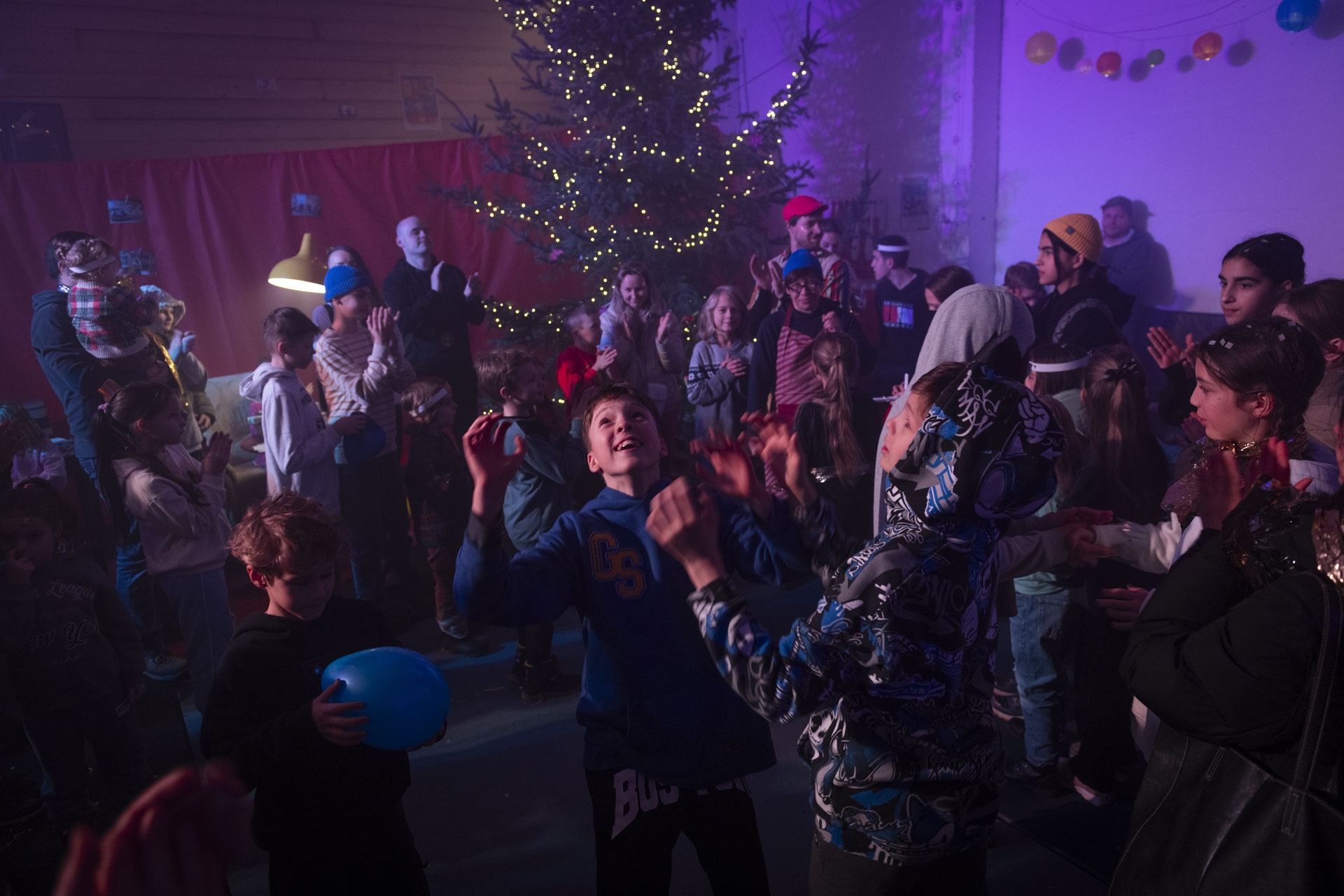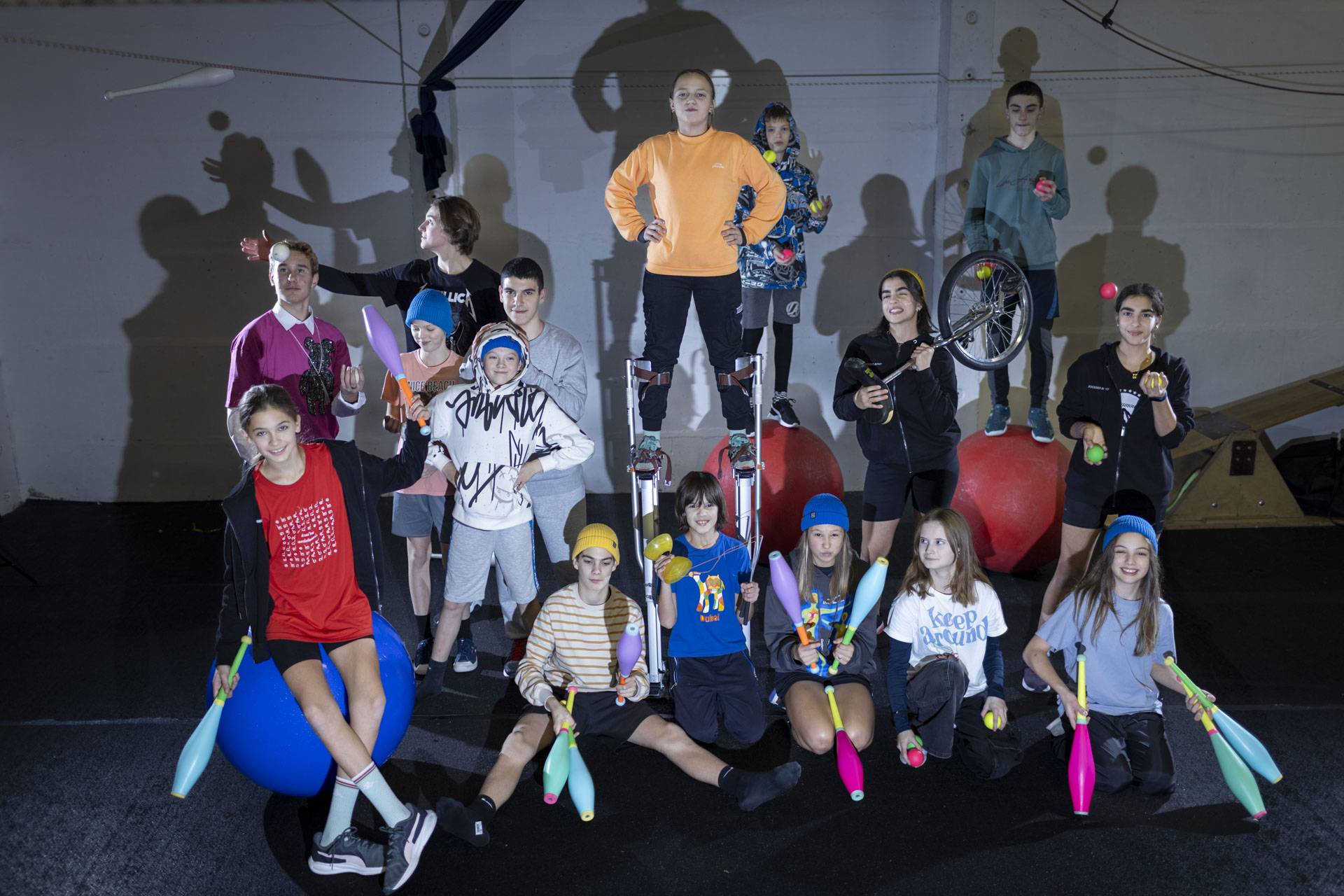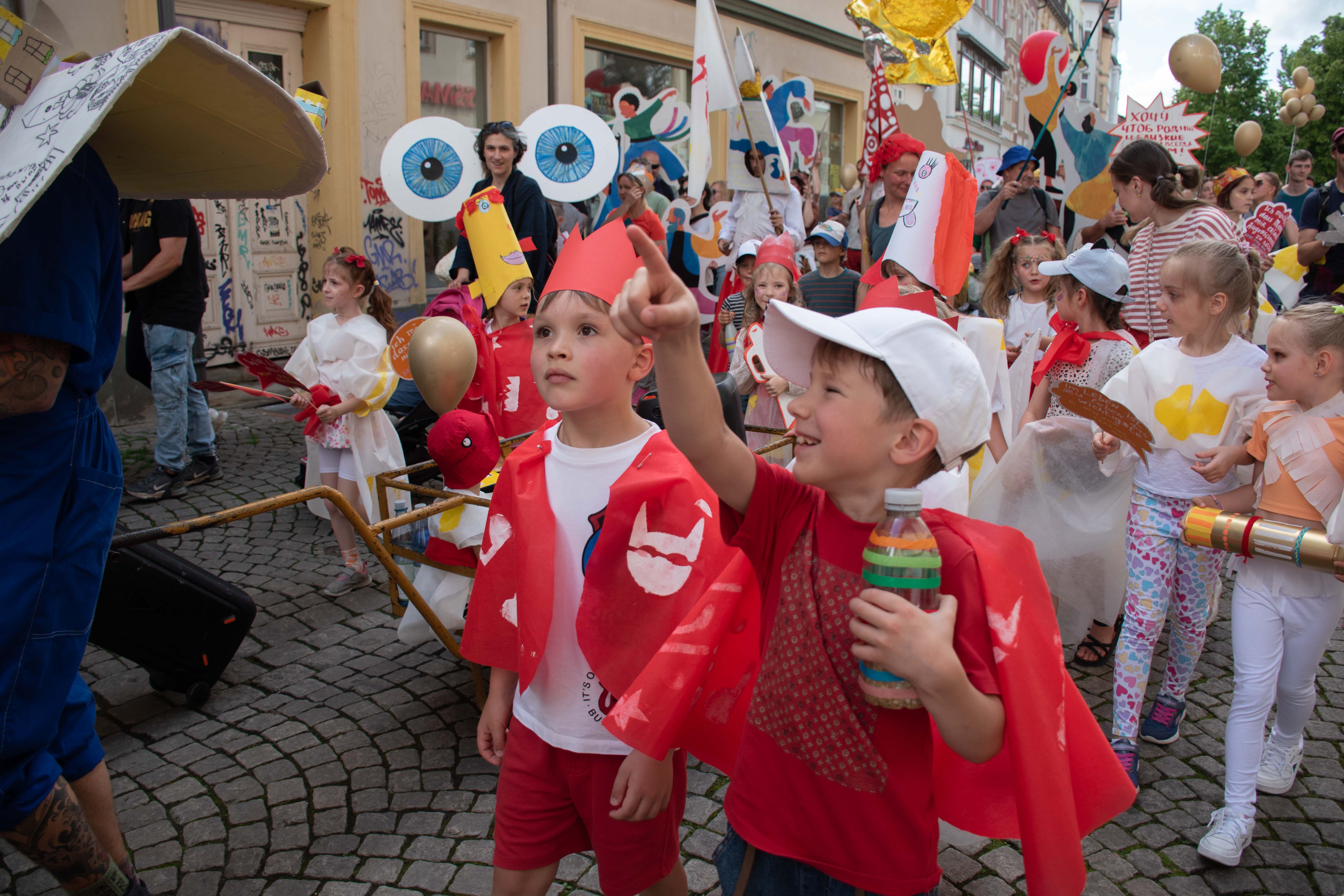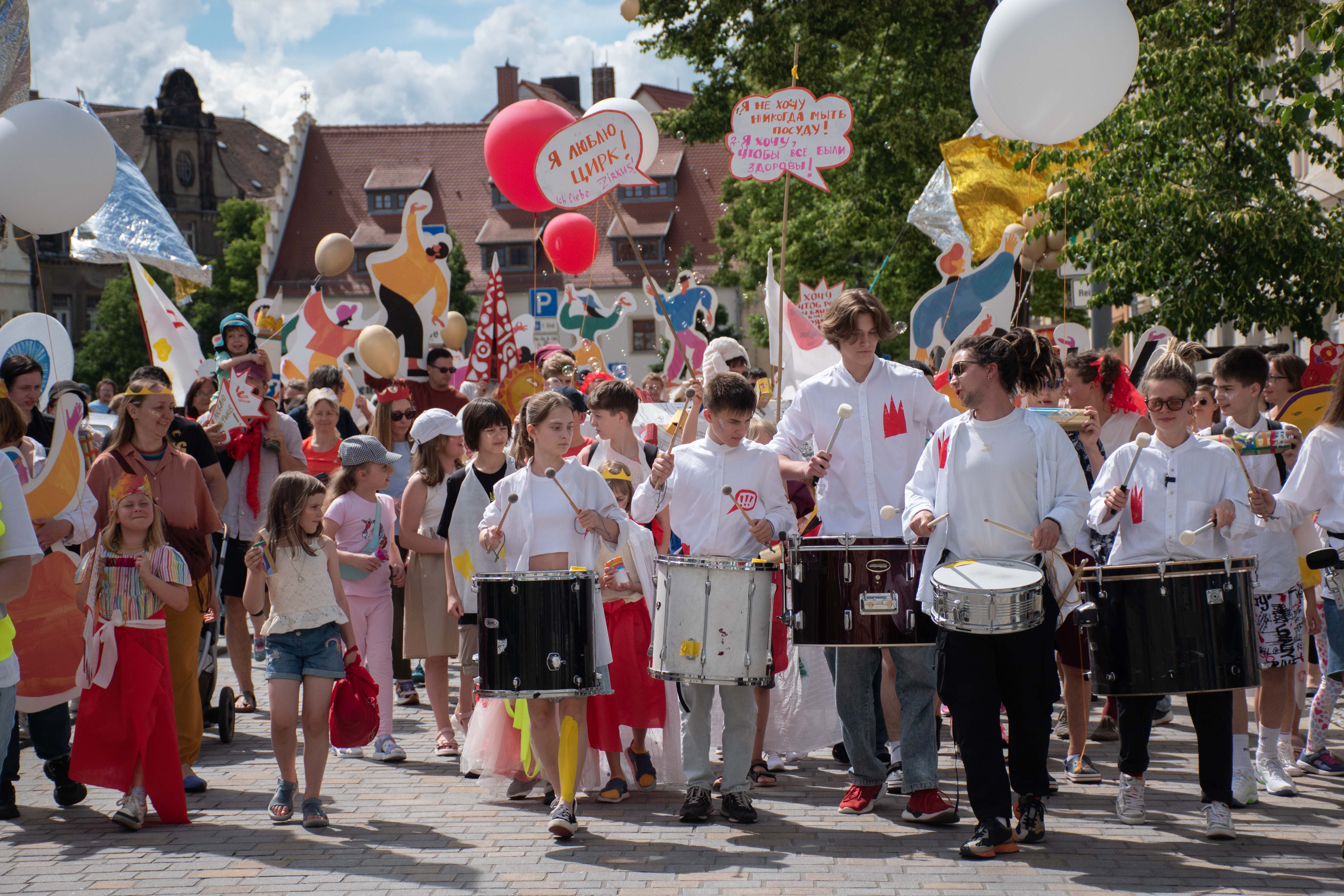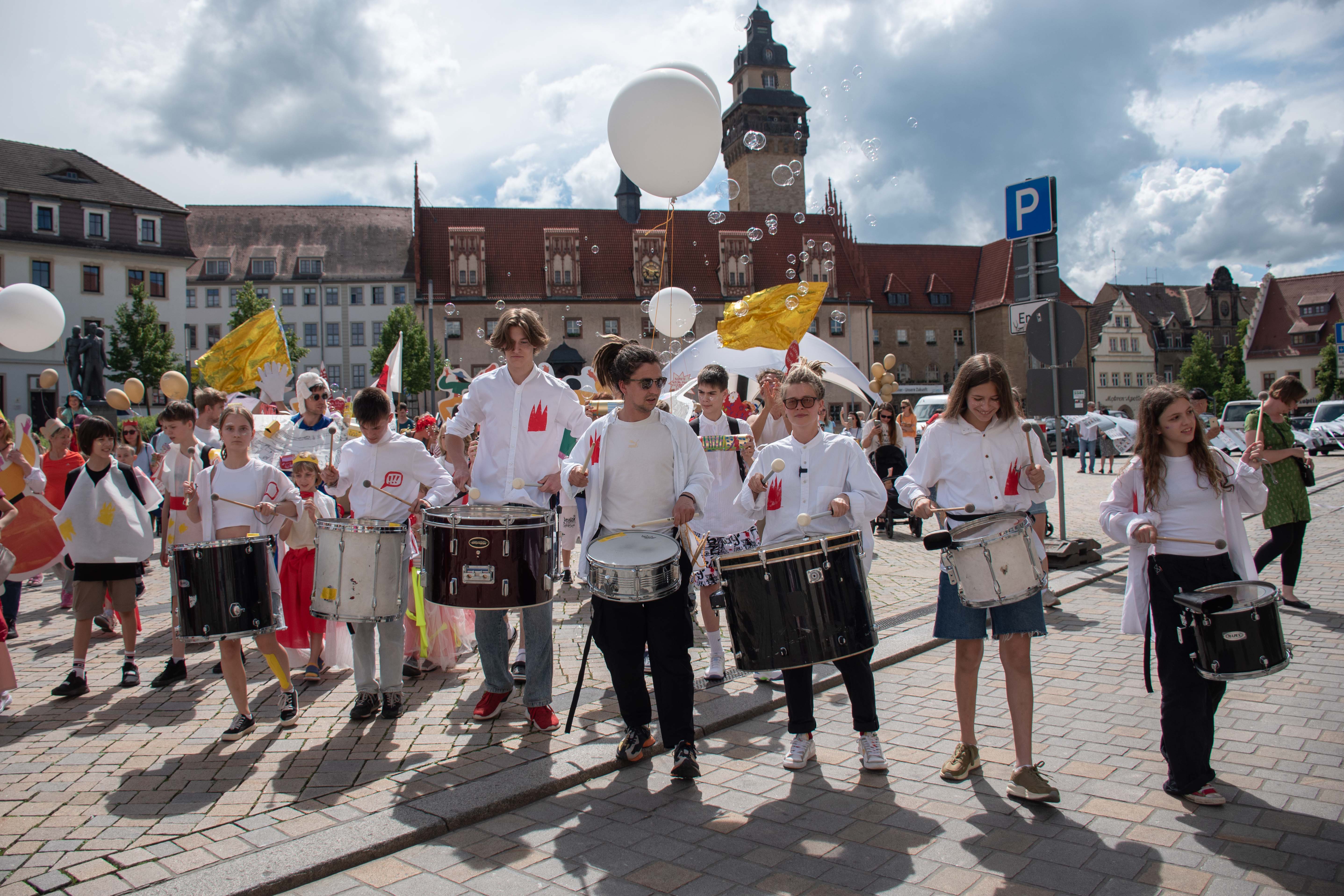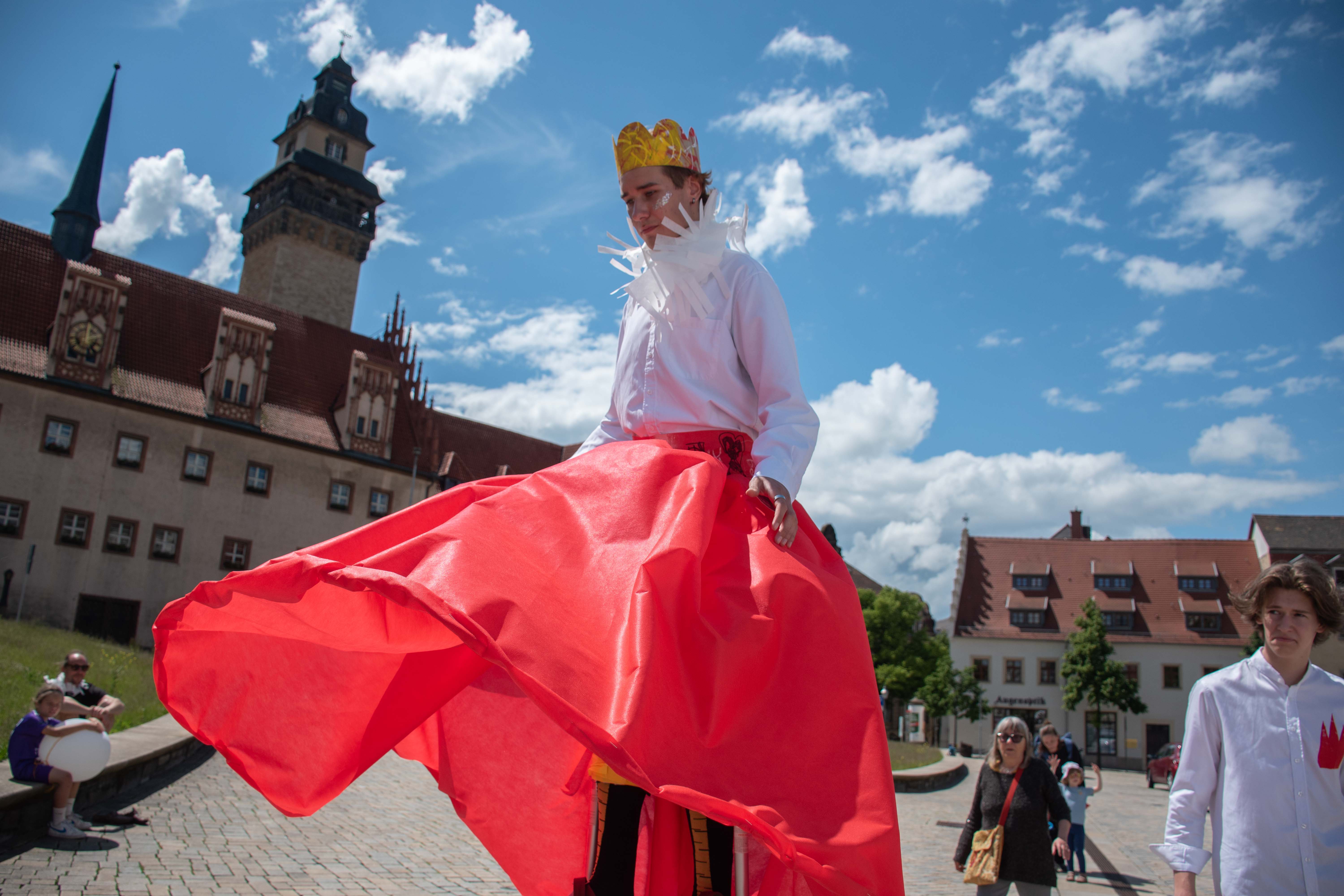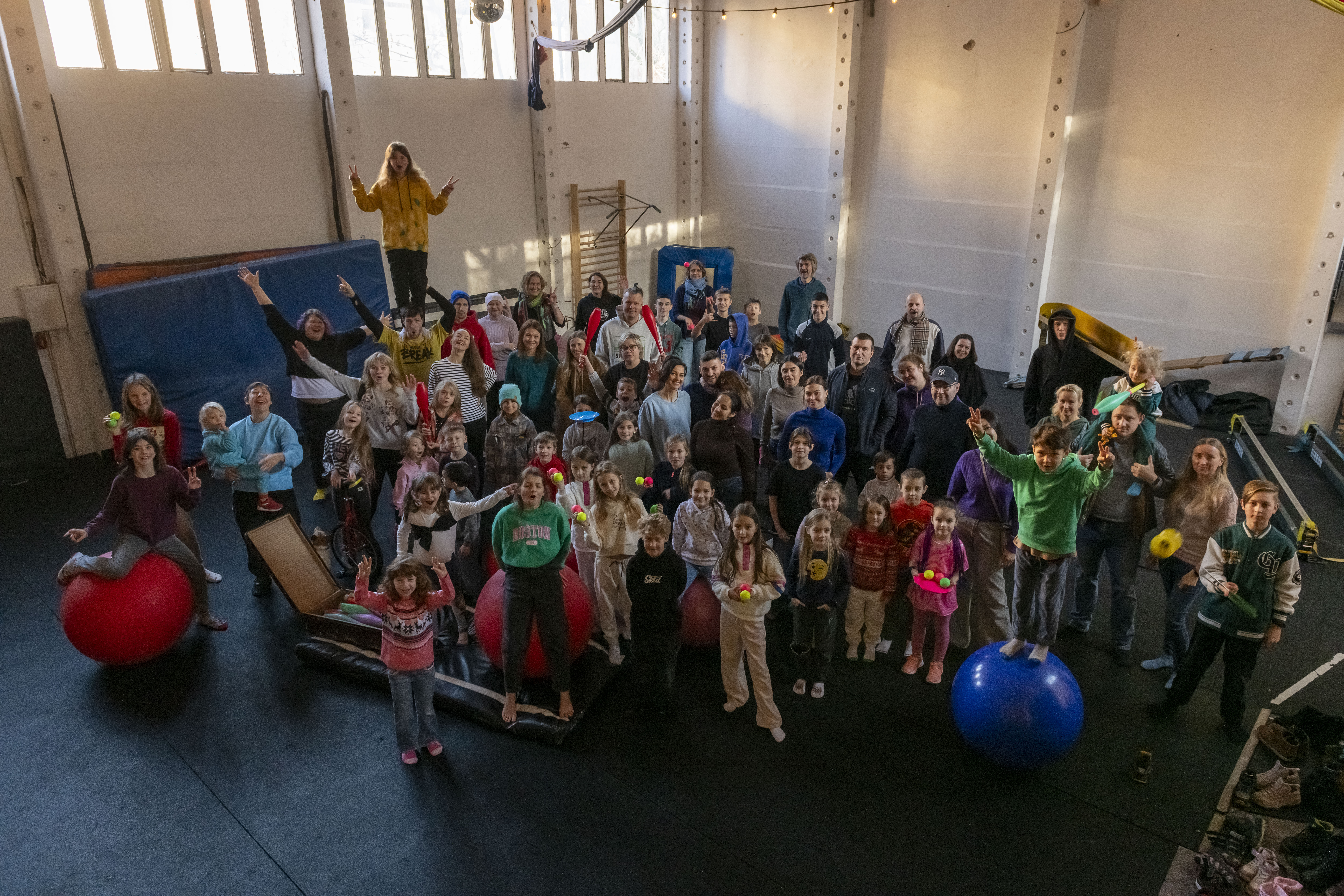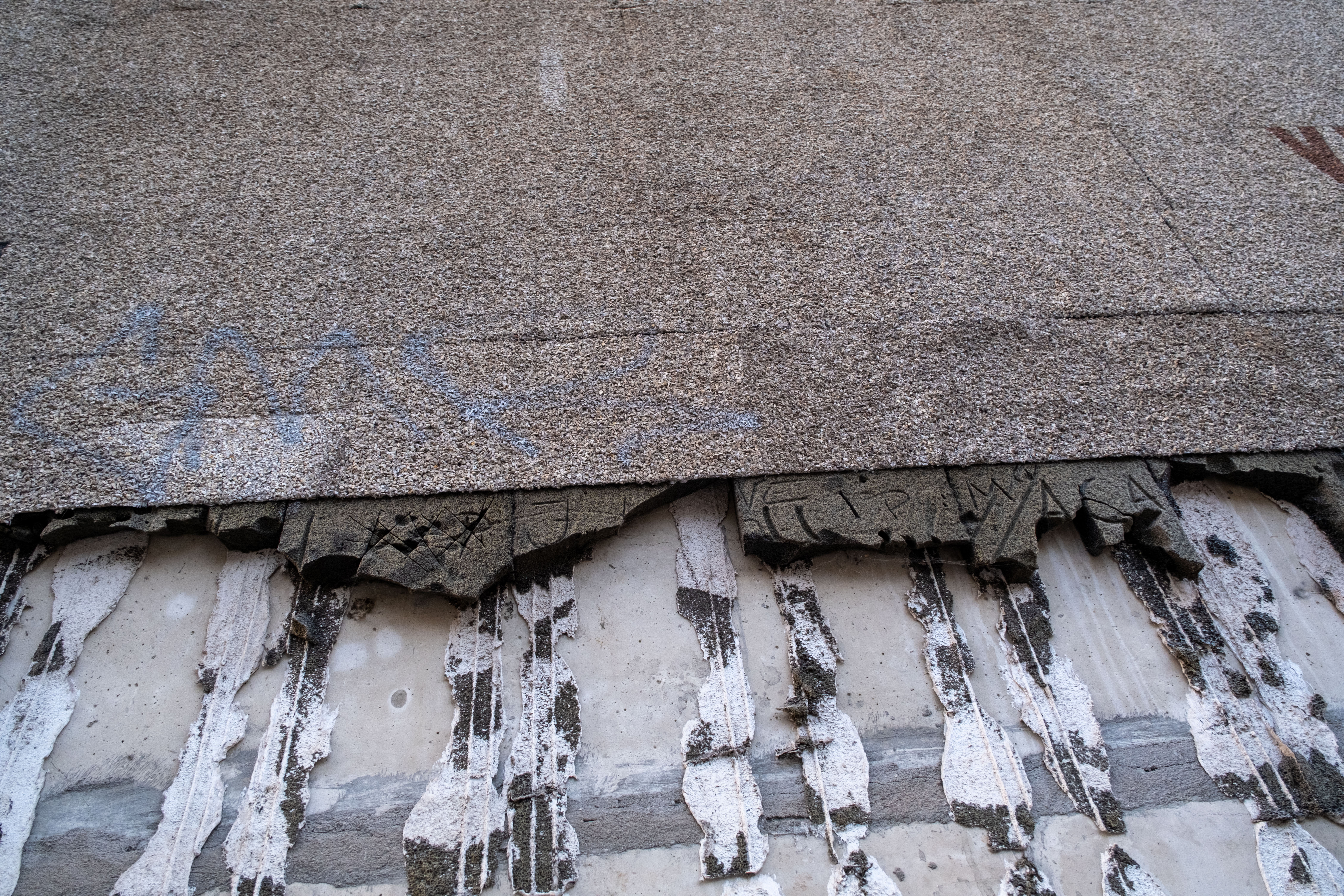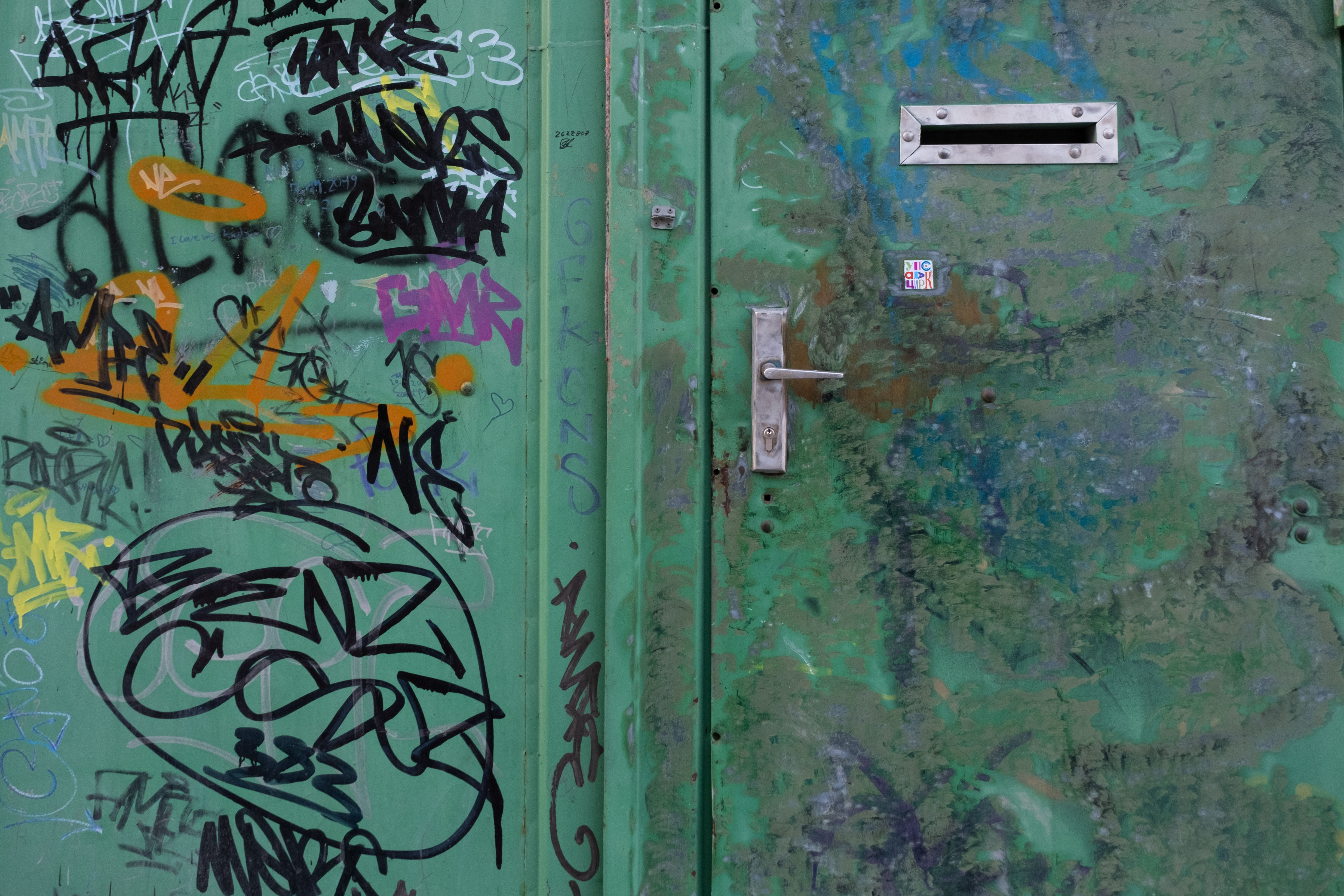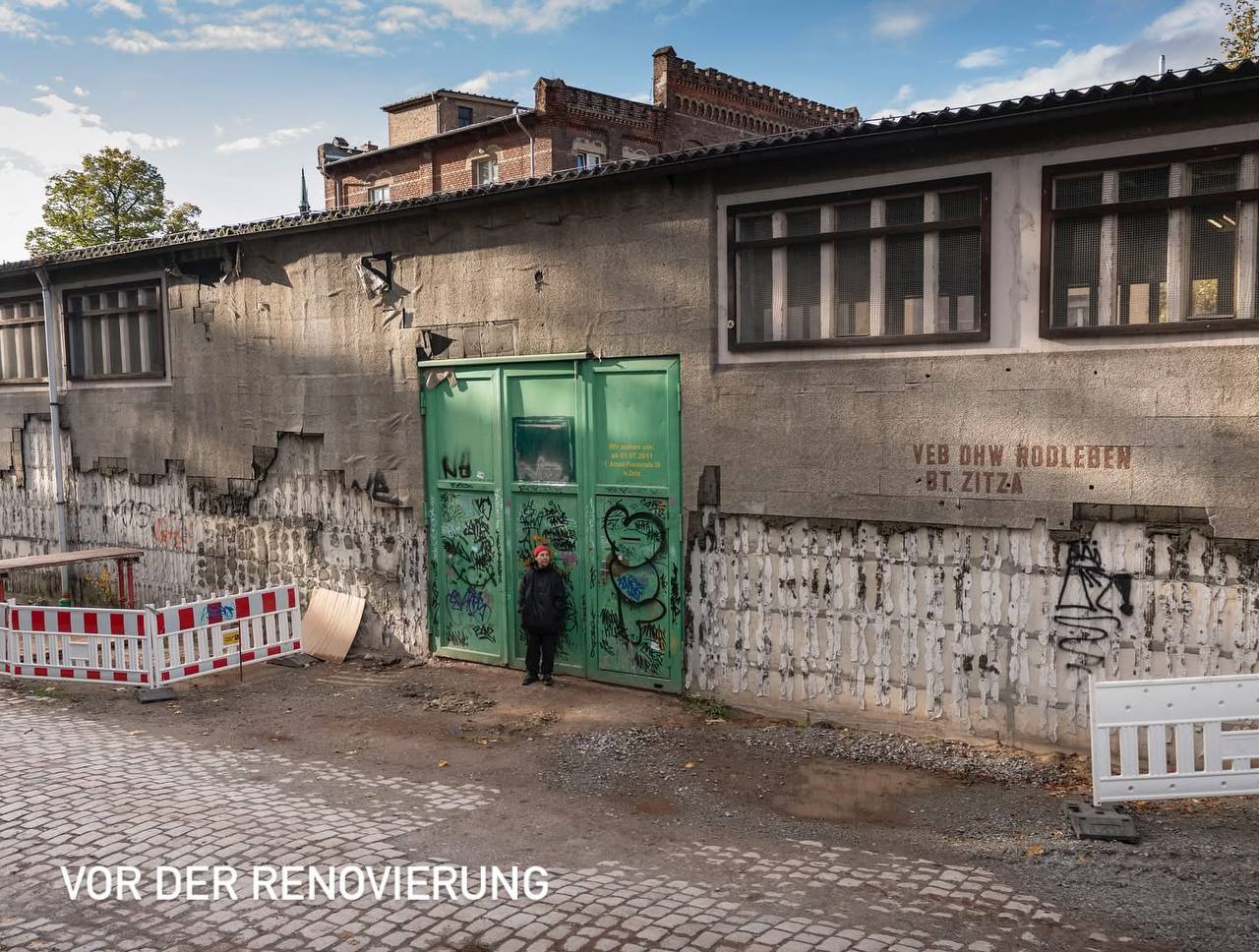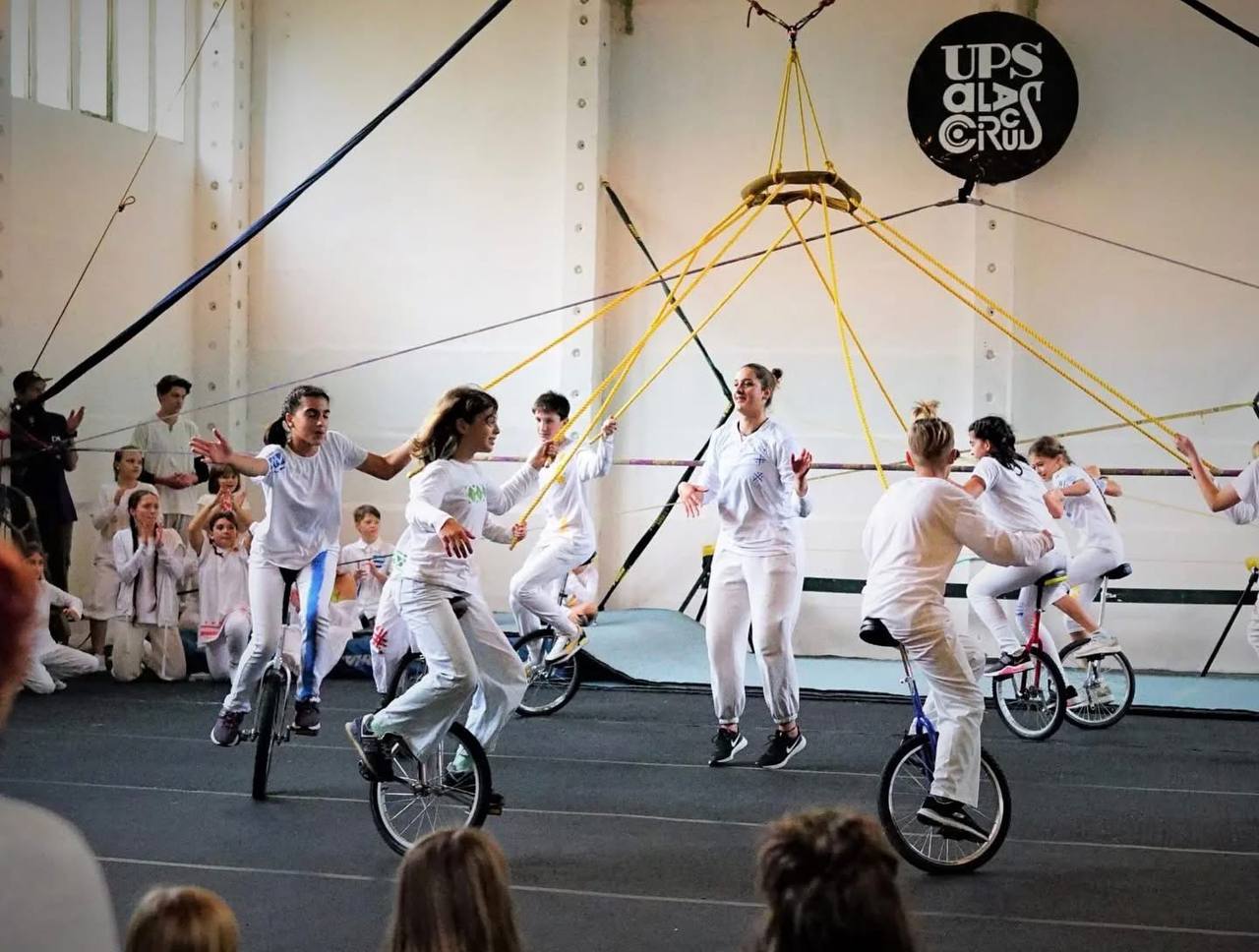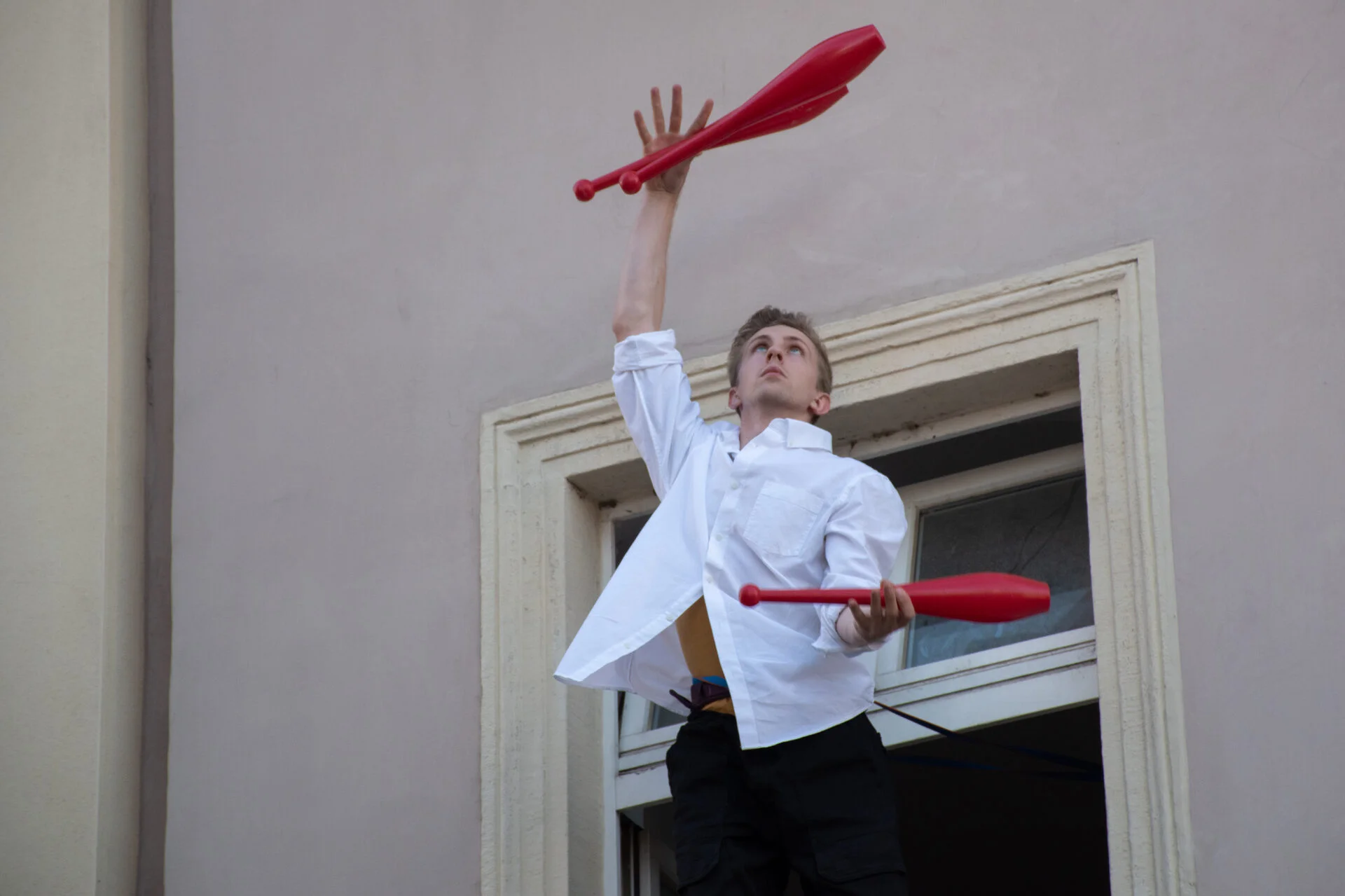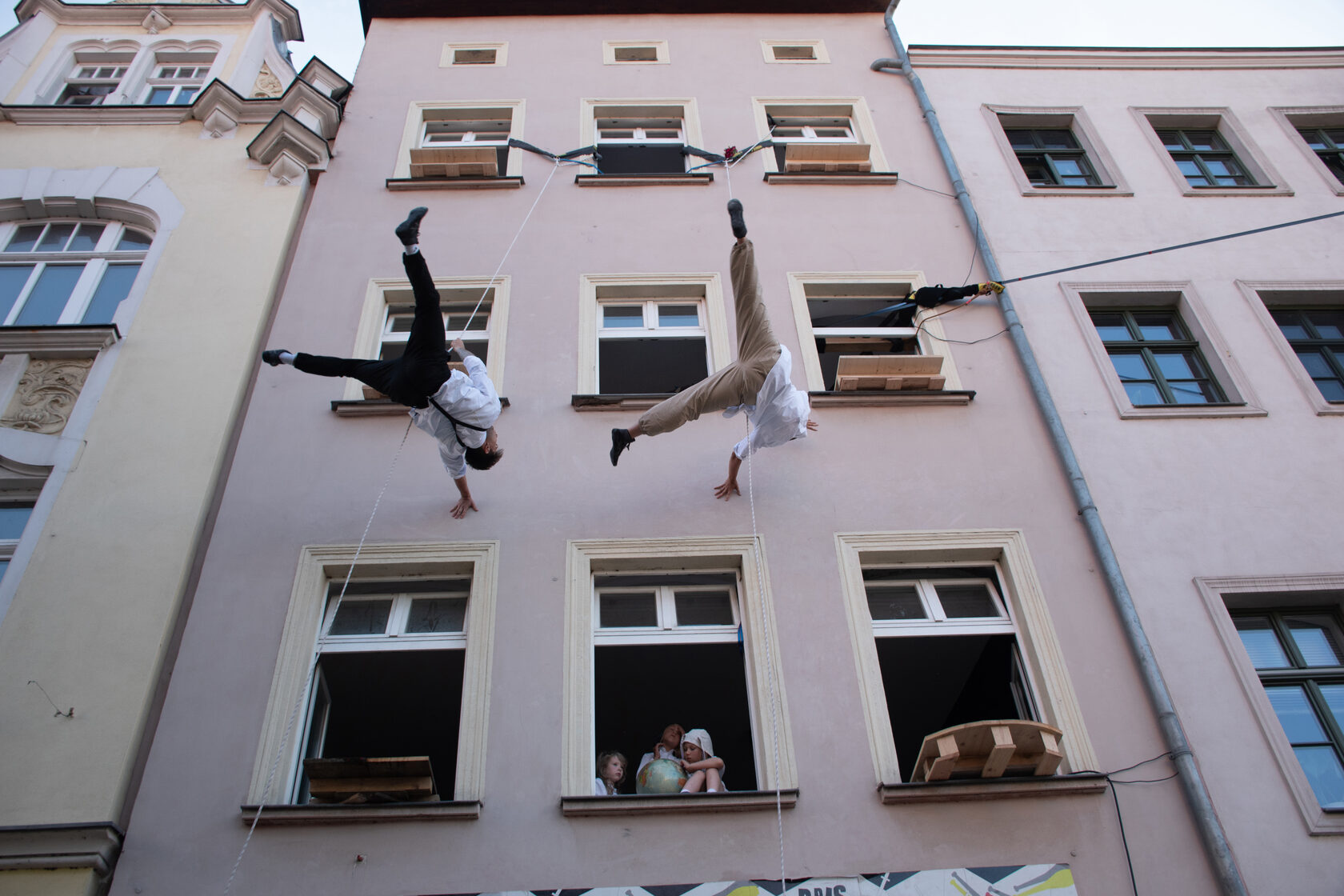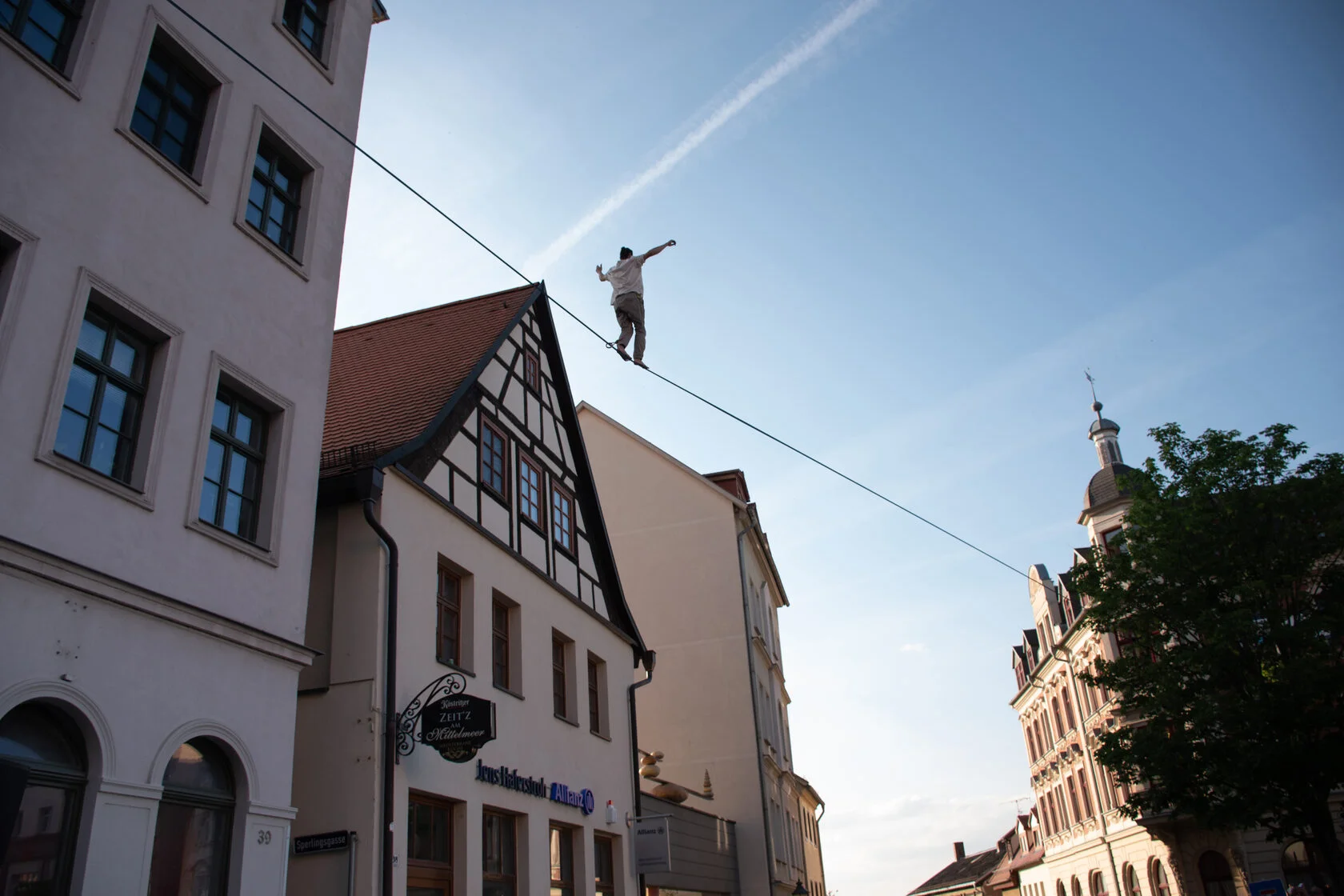Prioritising the places and people that need it the most
UPSALA CIRCUS
UPSALA CIRCUS GARAGE
Creation and opening of the first Upsala Circus space in Zeitz. A training space was created in a former taxi garage building, where circus classes, workshops with guest performers, performances and shows for a small audience (50-60 people) are held on a regular basis. Upsala Garage becomes a public space that contributes to the development of Zeitz's infrastructure.
Germany
National
Mainly urban
It refers to other types of transformations (soft investment)
Yes
2023-09-09
No
No
Yes
Yes
Yes
As a representative of an organisation
The Upsala Circus project in Zeitz transforms a former taxi garage into a vibrant community hub—Upsala Garage—offering regular circus training, workshops, and performances. This initiative fosters cultural exchange and social inclusion by providing a creative space where children and teenagers from diverse backgrounds, including Ukraine, Germany, Afghanistan, Syria, and Serbia, can engage in circus arts.
The project prioritizes vulnerable communities, promoting artistic expression, social integration, and skill development. Through circus workshops and performances, it enhances public engagement while contributing to the cultural and infrastructural regeneration of Zeitz.
Target Groups:
Children and teenagers from underrepresented and displaced communities
Local families and residents
Artists and performers seeking an inclusive creative space
Creation of Upsala Garage: The conversion of a former taxi garage into a multifunctional circus training and performance space, accommodating 50-60 spectators, making culture accessible in a previously underutilized urban area.
Open Circus Workshops in Goethe Park: Daily workshops welcomed around 40 children, promoting intercultural dialogue and community cohesion.
Circus Fairy Tale “Yarns”: A collaborative performance developed by children and teenagers, incorporating juggling, slapstick, acrobatics, and aerial arts. The performance was inspired by a tale they created about resilience and belonging.
Art Lab “Circus in the City”: A two-week exploration of Zeitz through modern circus arts, fostering creative urban engagement and participatory artistic practices.
The project embodies sustainability, inclusivity, and beauty by repurposing existing infrastructure, empowering vulnerable communities, and fostering cultural participation. It directly addresses social and economic challenges in Zeitz, revitalizing urban spaces and creating new opportunities.
The project prioritizes vulnerable communities, promoting artistic expression, social integration, and skill development. Through circus workshops and performances, it enhances public engagement while contributing to the cultural and infrastructural regeneration of Zeitz.
Target Groups:
Children and teenagers from underrepresented and displaced communities
Local families and residents
Artists and performers seeking an inclusive creative space
Creation of Upsala Garage: The conversion of a former taxi garage into a multifunctional circus training and performance space, accommodating 50-60 spectators, making culture accessible in a previously underutilized urban area.
Open Circus Workshops in Goethe Park: Daily workshops welcomed around 40 children, promoting intercultural dialogue and community cohesion.
Circus Fairy Tale “Yarns”: A collaborative performance developed by children and teenagers, incorporating juggling, slapstick, acrobatics, and aerial arts. The performance was inspired by a tale they created about resilience and belonging.
Art Lab “Circus in the City”: A two-week exploration of Zeitz through modern circus arts, fostering creative urban engagement and participatory artistic practices.
The project embodies sustainability, inclusivity, and beauty by repurposing existing infrastructure, empowering vulnerable communities, and fostering cultural participation. It directly addresses social and economic challenges in Zeitz, revitalizing urban spaces and creating new opportunities.
Social Inclusion
Cultural Regeneration
Youth Empowerment
Community Engagement
Urban Revitalization
Social sustainability is achieved by creating a safe and inclusive space that fosters long-term community engagement, cultural integration, and skill development. The project actively includes children from displaced and disadvantaged backgrounds, giving them opportunities for creative expression and personal growth. Through these efforts, Upsala Circus serves as an exemplary model of sustainable cultural regeneration, demonstrating how art and community-driven initiatives can revitalize neglected spaces while fostering social inclusion.
Impact & Alignment with NEB Principles:
The project embodies sustainability, inclusivity, and beauty by repurposing existing infrastructure, empowering vulnerable communities, and fostering cultural participation. It directly addresses social and economic challenges in Zeitz, revitalizing urban spaces and creating opportunities for refugee and low-income youth through artistic expression and community-building.
By transforming an industrial site into a dynamic cultural hub, Upsala Circus exemplifies the values of the New European Bauhaus—prioritizing places and people in need, enhancing accessibility, and fostering creative community-driven urban renewal.
Impact & Alignment with NEB Principles:
The project embodies sustainability, inclusivity, and beauty by repurposing existing infrastructure, empowering vulnerable communities, and fostering cultural participation. It directly addresses social and economic challenges in Zeitz, revitalizing urban spaces and creating opportunities for refugee and low-income youth through artistic expression and community-building.
By transforming an industrial site into a dynamic cultural hub, Upsala Circus exemplifies the values of the New European Bauhaus—prioritizing places and people in need, enhancing accessibility, and fostering creative community-driven urban renewal.
The key objectives of the Upsala Circus project are to enhance aesthetics and the quality of experience through innovative design and cultural engagement, creating inclusive, sustainable, and inspiring spaces for communities. These objectives have been met through the transformation of a disused taxi garage into a vibrant circus hub and the creation of performances like Windows, which blend contemporary circus arts with historical storytelling.
The project prioritizes aesthetic excellence by integrating multimedia elements, such as videomapping, to visually revive the history of Zeitz, merging past and present in a dynamic, immersive experience. The performance Windows, staged during Zeitz’s Inclusion Week, exemplifies this approach. By using archival materials to animate the stories of former residents and combining them with circus disciplines—juggling, acrobatics, slackline, and more—the project creates a visually stunning and emotionally resonant narrative. The final scene, where an artist traverses a slackline between buildings, symbolizes connection and dialogue, bridging communities and histories.
Culturally, the project enriches the community by fostering inclusivity and intercultural exchange. It engages diverse groups, including migrants and locals, in co-creating performances, ensuring that the cultural benefits are both participatory and transformative. The use of public spaces, such as Goethe Park and the historic house, democratizes access to art, making it a shared experience for all.
The project serves as an exemplary model by demonstrating how art and design can revitalize urban spaces, promote social cohesion, and preserve cultural heritage. Its innovative blend of aesthetics, technology, and community engagement offers a replicable framework for addressing global challenges through local, culturally rooted solutions.
The project prioritizes aesthetic excellence by integrating multimedia elements, such as videomapping, to visually revive the history of Zeitz, merging past and present in a dynamic, immersive experience. The performance Windows, staged during Zeitz’s Inclusion Week, exemplifies this approach. By using archival materials to animate the stories of former residents and combining them with circus disciplines—juggling, acrobatics, slackline, and more—the project creates a visually stunning and emotionally resonant narrative. The final scene, where an artist traverses a slackline between buildings, symbolizes connection and dialogue, bridging communities and histories.
Culturally, the project enriches the community by fostering inclusivity and intercultural exchange. It engages diverse groups, including migrants and locals, in co-creating performances, ensuring that the cultural benefits are both participatory and transformative. The use of public spaces, such as Goethe Park and the historic house, democratizes access to art, making it a shared experience for all.
The project serves as an exemplary model by demonstrating how art and design can revitalize urban spaces, promote social cohesion, and preserve cultural heritage. Its innovative blend of aesthetics, technology, and community engagement offers a replicable framework for addressing global challenges through local, culturally rooted solutions.
The Upsala Circus project in Zeitz is built on the principles of inclusion, accessibility, and social integration. By transforming a former taxi garage into a dedicated circus space, the project creates an open and welcoming environment where individuals from diverse backgrounds, including refugees, children with disabilities, and economically disadvantaged youth, can actively participate in artistic and community-building activities.
Accessibility & Affordability:
• The project ensures free access to workshops and performances, removing financial barriers to participation.
• Open circus workshops in Goethe Park provide an accessible, public setting for engagement, allowing children and teenagers from Ukraine, Germany, Afghanistan, Syria, and Serbia to join daily sessions.
• The infrastructure of Upsala Garage is designed to be inclusive, ensuring physical accessibility for participants with mobility challenges.
Diversity & Inclusion:
• The initiative actively involves children and teenagers with Down syndrome, autism, and other mental or genetic conditions, fostering a supportive, non-judgmental space where everyone can express themselves through movement and creativity.
• The Circus Fairy Tale “Yarns” engaged children in storytelling and performance, encouraging self-expression and cultural exchange. The collaborative process empowered them to share personal narratives and develop confidence.
• The Art Lab "Circus in the City" expanded artistic engagement by bringing modern circus practices into the urban landscape of Zeitz, ensuring a diverse range of community members could participate.
Inclusive Cultural Narratives:
• The historic performance "Windows," staged during Zeitz’s Inclusion Week, exemplifies an innovative approach to accessibility and social engagement. By using an old house’s windows as a performance stage, the event transformed urban space into an inclusive artistic platform.
Accessibility & Affordability:
• The project ensures free access to workshops and performances, removing financial barriers to participation.
• Open circus workshops in Goethe Park provide an accessible, public setting for engagement, allowing children and teenagers from Ukraine, Germany, Afghanistan, Syria, and Serbia to join daily sessions.
• The infrastructure of Upsala Garage is designed to be inclusive, ensuring physical accessibility for participants with mobility challenges.
Diversity & Inclusion:
• The initiative actively involves children and teenagers with Down syndrome, autism, and other mental or genetic conditions, fostering a supportive, non-judgmental space where everyone can express themselves through movement and creativity.
• The Circus Fairy Tale “Yarns” engaged children in storytelling and performance, encouraging self-expression and cultural exchange. The collaborative process empowered them to share personal narratives and develop confidence.
• The Art Lab "Circus in the City" expanded artistic engagement by bringing modern circus practices into the urban landscape of Zeitz, ensuring a diverse range of community members could participate.
Inclusive Cultural Narratives:
• The historic performance "Windows," staged during Zeitz’s Inclusion Week, exemplifies an innovative approach to accessibility and social engagement. By using an old house’s windows as a performance stage, the event transformed urban space into an inclusive artistic platform.
The Upsala Circus project in Zeitz is deeply rooted in community participation, fostering an inclusive and collaborative environment where local citizens and civil society actively shape its development. The initiative has directly engaged a wide spectrum of residents, from children and families to social organizations and cultural institutions, ensuring broad societal impact.
Community Involvement & Engagement: From the outset, the project has been co-created with local stakeholders. Residents contributed to the transformation of the former taxi garage into a functional training and performance space, assisting in renovation efforts and offering input on spatial design to ensure it met the needs of diverse users. Parents and family members of participants regularly volunteer, organizing community gatherings, coordinating logistics for performances, and providing essential support to young artists.
Civic Participation & Social Impact: The initiative has established partnerships with local NGOs, refugee organizations, and municipal agencies, ensuring that children and teenagers from disadvantaged backgrounds have access to workshops and training. Collaborations with educational institutions and social workers have further strengthened the program, offering tailored activities for young people with special needs and fostering an inclusive, supportive learning environment.
Interactive Programming & Public Dialogue: The circus workshops and performances actively involve citizens not only as spectators but also as co-creators. Public rehearsals and open workshops encourage spontaneous engagement, enabling residents to explore circus arts and develop new skills. The "Windows" performance, a highlight of Zeitz’s Inclusion Week, invited local historians and former residents to share stories, which were then incorporated into the narrative, creating a living dialogue between past and present.
Community Involvement & Engagement: From the outset, the project has been co-created with local stakeholders. Residents contributed to the transformation of the former taxi garage into a functional training and performance space, assisting in renovation efforts and offering input on spatial design to ensure it met the needs of diverse users. Parents and family members of participants regularly volunteer, organizing community gatherings, coordinating logistics for performances, and providing essential support to young artists.
Civic Participation & Social Impact: The initiative has established partnerships with local NGOs, refugee organizations, and municipal agencies, ensuring that children and teenagers from disadvantaged backgrounds have access to workshops and training. Collaborations with educational institutions and social workers have further strengthened the program, offering tailored activities for young people with special needs and fostering an inclusive, supportive learning environment.
Interactive Programming & Public Dialogue: The circus workshops and performances actively involve citizens not only as spectators but also as co-creators. Public rehearsals and open workshops encourage spontaneous engagement, enabling residents to explore circus arts and develop new skills. The "Windows" performance, a highlight of Zeitz’s Inclusion Week, invited local historians and former residents to share stories, which were then incorporated into the narrative, creating a living dialogue between past and present.
The project brings together a a diverse group of stakeholders and uses interdisciplinary approach in creating the final result. Through workshops, public events, and digital integration, the project also pens up channels for international collaboration, enabling cultural practitioners from different countries to engage with local participants, share best practices, and co-develop innovative cultural projects. This creates a bridge between Zeitz and global cultural initiatives, contributing to the international visibility of the local community while enriching the cultural landscape with diverse perspectives.
The Upsala Circus project has been developed through extensive collaboration with stakeholders at multiple levels, ensuring a dynamic exchange of expertise, resources, and community engagement. At the local level, strong partnerships with organizations such as Neue Nachbarschaft Moabit have played a crucial role in fostering social cohesion. As one of the largest voluntary neighborhood initiatives in Berlin, they provided a platform for artistic exchange, enabling a series of joint workshops for children and teenagers in September and November.
On a regional scale, the collaboration with Sunflower Care e.V. has been instrumental in integrating children and young people with autism spectrum disorder (ASD) into circus training. In November, a two-day masterclass introduced circus disciplines to participants, creating a supportive environment where artistic expression and personal development intersect. This engagement has enriched the project's inclusive approach, demonstrating the transformative power of circus arts for neurodivergent individuals.
At the national and European levels, the project's integration into key networks such as Caravan, CircoStrada, and BAG Cirkuspedagogik e.V. has facilitated the exchange of best practices and innovative pedagogical methods. Membership in these networks has provided access to an international pool of experts.
The Upsala Circus project has been developed through extensive collaboration with stakeholders at multiple levels, ensuring a dynamic exchange of expertise, resources, and community engagement. At the local level, strong partnerships with organizations such as Neue Nachbarschaft Moabit have played a crucial role in fostering social cohesion. As one of the largest voluntary neighborhood initiatives in Berlin, they provided a platform for artistic exchange, enabling a series of joint workshops for children and teenagers in September and November.
On a regional scale, the collaboration with Sunflower Care e.V. has been instrumental in integrating children and young people with autism spectrum disorder (ASD) into circus training. In November, a two-day masterclass introduced circus disciplines to participants, creating a supportive environment where artistic expression and personal development intersect. This engagement has enriched the project's inclusive approach, demonstrating the transformative power of circus arts for neurodivergent individuals.
At the national and European levels, the project's integration into key networks such as Caravan, CircoStrada, and BAG Cirkuspedagogik e.V. has facilitated the exchange of best practices and innovative pedagogical methods. Membership in these networks has provided access to an international pool of experts.
The Upsala Circus project integrates multiple disciplines and knowledge fields, fostering an interdisciplinary approach that enhances its educational, artistic, and social impact. The design and implementation of the project have drawn on expertise from contemporary circus arts, social pedagogy, psychology, urban studies, and digital media. By intertwining these fields, the project has created an inclusive space where artistic expression, community engagement, and personal development intersect.
Contemporary circus serves as the project's foundation, incorporating disciplines such as acrobatics, juggling, balance techniques, and aerial performance. These physical practices are complemented by social pedagogy, ensuring that circus training is accessible to diverse groups, including children and young people from refugee backgrounds and individuals with neurodivergent traits. Experts in psychology have contributed to the development of supportive learning environments, helping to adapt training methods to the specific needs of participants and fostering emotional resilience through artistic expression.
Urban studies have played a crucial role in the project's spatial integration, particularly in transforming a former taxi garage into a vibrant cultural hub and using public spaces for performances. This interdisciplinary perspective has enabled a dynamic interaction between the project and the city, turning previously underutilized locations into inclusive, creative spaces. Digital media specialists have further enriched the project by integrating video mapping and interactive storytelling, as demonstrated in the "Windows" and "Feathers" performances, where archival materials were brought to life through visual projections.
The interaction between these diverse disciplines has been highly synergistic, fostering innovative methodologies and amplifying the project's societal impact. By combining artistic practice with educational strategies and spatial transformation.
Contemporary circus serves as the project's foundation, incorporating disciplines such as acrobatics, juggling, balance techniques, and aerial performance. These physical practices are complemented by social pedagogy, ensuring that circus training is accessible to diverse groups, including children and young people from refugee backgrounds and individuals with neurodivergent traits. Experts in psychology have contributed to the development of supportive learning environments, helping to adapt training methods to the specific needs of participants and fostering emotional resilience through artistic expression.
Urban studies have played a crucial role in the project's spatial integration, particularly in transforming a former taxi garage into a vibrant cultural hub and using public spaces for performances. This interdisciplinary perspective has enabled a dynamic interaction between the project and the city, turning previously underutilized locations into inclusive, creative spaces. Digital media specialists have further enriched the project by integrating video mapping and interactive storytelling, as demonstrated in the "Windows" and "Feathers" performances, where archival materials were brought to life through visual projections.
The interaction between these diverse disciplines has been highly synergistic, fostering innovative methodologies and amplifying the project's societal impact. By combining artistic practice with educational strategies and spatial transformation.
The Upsala Circus project in Zeitz represents a groundbreaking approach to urban regeneration and social inclusion through the innovative use of circus arts. Unlike mainstream initiatives, which often focus solely on physical infrastructure, this project integrates cultural, social, and community-building elements to revitalize neglected spaces and empower marginalized groups. By transforming a disused taxi garage into a vibrant training and performance space, the project not only addresses the physical decay of urban areas but also fosters intercultural dialogue and inclusivity.
The initiative stands out for its participatory approach, engaging children and teenagers from diverse backgrounds—including refugees and locals—in circus training, storytelling, and performances. This creative methodology promotes social cohesion, skill development, and self-expression, particularly for vulnerable groups. The circus performance “Yarns,” co-created by participants, exemplifies this by blending artistic excellence with personal narratives, while the inclusive Art Lab “Circus in the City” reimagines public spaces through interactive circus activities.
Moreover, the project’s historical performance “Windows” during Zeitz’s Inclusion Week showcases its innovative use of multimedia, combining circus arts with videomapping to revive forgotten stories of the city’s inhabitants. This unique blend of art, technology, and community engagement transforms urban spaces into platforms for cultural exchange and historical reflection.
The initiative stands out for its participatory approach, engaging children and teenagers from diverse backgrounds—including refugees and locals—in circus training, storytelling, and performances. This creative methodology promotes social cohesion, skill development, and self-expression, particularly for vulnerable groups. The circus performance “Yarns,” co-created by participants, exemplifies this by blending artistic excellence with personal narratives, while the inclusive Art Lab “Circus in the City” reimagines public spaces through interactive circus activities.
Moreover, the project’s historical performance “Windows” during Zeitz’s Inclusion Week showcases its innovative use of multimedia, combining circus arts with videomapping to revive forgotten stories of the city’s inhabitants. This unique blend of art, technology, and community engagement transforms urban spaces into platforms for cultural exchange and historical reflection.
The methodology underpinning the Upsala Circus project in Zeitz is rooted in the innovative Upsala-Circus Method, a unique framework combining circus pedagogy, contemporary circus arts, and community engagement. This approach is designed to foster inclusivity, creativity, and personal development, particularly among marginalized groups. By integrating artistic expression with social empowerment, the method transforms participants into active contributors to cultural and community life.
Central to this methodology is the creation of a safe, non-judgmental space where children and teenagers, regardless of nationality, ethnicity, religion, gender, or language, can explore their potential. Through structured circus training—including disciplines such as juggling, acrobatics, and aerial arts—participants develop not only technical skills but also essential soft skills like teamwork, resilience, and self-confidence. This holistic development is further enhanced by collaborative creative processes, where participants co-author performances, such as the circus fairy tale “Yarns,” blending personal narratives with artistic expression.
The project also employs participatory urban exploration, as seen in the Art Lab “Circus in the City,” where circus arts are used to reimagine public spaces and foster a sense of belonging. Additionally, the integration of multimedia elements, such as videomapping in the performance “Windows,” demonstrates a forward-thinking approach to storytelling, merging historical reflection with contemporary art forms.
By prioritizing inclusivity, creativity, and community co-creation, the Upsala-Circus Method offers a replicable model for addressing social challenges through art, making it a transformative tool for urban regeneration and social cohesion.
Central to this methodology is the creation of a safe, non-judgmental space where children and teenagers, regardless of nationality, ethnicity, religion, gender, or language, can explore their potential. Through structured circus training—including disciplines such as juggling, acrobatics, and aerial arts—participants develop not only technical skills but also essential soft skills like teamwork, resilience, and self-confidence. This holistic development is further enhanced by collaborative creative processes, where participants co-author performances, such as the circus fairy tale “Yarns,” blending personal narratives with artistic expression.
The project also employs participatory urban exploration, as seen in the Art Lab “Circus in the City,” where circus arts are used to reimagine public spaces and foster a sense of belonging. Additionally, the integration of multimedia elements, such as videomapping in the performance “Windows,” demonstrates a forward-thinking approach to storytelling, merging historical reflection with contemporary art forms.
By prioritizing inclusivity, creativity, and community co-creation, the Upsala-Circus Method offers a replicable model for addressing social challenges through art, making it a transformative tool for urban regeneration and social cohesion.
The Upsala Circus project is highly replicable and adaptable, with its core elements transferable to diverse contexts, beneficiary groups, and locations worldwide. At its heart lies the Upsala-Circus Method, a flexible framework combining circus pedagogy, contemporary arts, and community engagement. This methodology can be tailored to various educational, cultural, and social programs, making it a powerful tool for fostering inclusivity, creativity, and personal development across different settings.
Key replicable elements include the participatory approach to performance creation, where participants co-author stories and productions, as demonstrated in the circus fairy tale “Yarns.” This model empowers individuals to express their unique narratives while building teamwork and confidence. Similarly, the Art Lab “Circus in the City” showcases how circus arts can be used to reimagine public spaces, a concept applicable to urban regeneration projects globally.
The integration of multimedia technologies, such as videomapping in the performances “Windows,” “Siutcaces“ and “Feathers” offers a scalable approach to blending historical storytelling with contemporary art, adaptable to various cultural and educational initiatives. Additionally, the project’s mobile workshops and training programs can be easily integrated into festivals, community events, or school curricula, providing accessible and engaging opportunities for skill development and social cohesion.
By emphasizing adaptability, inclusivity, and creativity, the Upsala Circus model serves as a versatile blueprint for addressing social challenges, empowering marginalized groups, and revitalizing communities through the transformative power of circus arts.
Key replicable elements include the participatory approach to performance creation, where participants co-author stories and productions, as demonstrated in the circus fairy tale “Yarns.” This model empowers individuals to express their unique narratives while building teamwork and confidence. Similarly, the Art Lab “Circus in the City” showcases how circus arts can be used to reimagine public spaces, a concept applicable to urban regeneration projects globally.
The integration of multimedia technologies, such as videomapping in the performances “Windows,” “Siutcaces“ and “Feathers” offers a scalable approach to blending historical storytelling with contemporary art, adaptable to various cultural and educational initiatives. Additionally, the project’s mobile workshops and training programs can be easily integrated into festivals, community events, or school curricula, providing accessible and engaging opportunities for skill development and social cohesion.
By emphasizing adaptability, inclusivity, and creativity, the Upsala Circus model serves as a versatile blueprint for addressing social challenges, empowering marginalized groups, and revitalizing communities through the transformative power of circus arts.
The Upsala Circus project addresses pressing global challenges such as urban decline, migration, and social fragmentation by offering innovative local solutions rooted in cultural and community engagement. By revitalizing a disused garage into a vibrant circus space, the project tackles the issue of urban decay, transforming neglected infrastructure into a hub for creativity and social interaction. This approach not only preserves cultural heritage but also fosters a sense of belonging and pride among residents.
Through performances like Windows, the project delves into the historical narratives of Zeitz, using archival research and multimedia storytelling to explore the city’s past and its impact on current communities. This initiative encourages dialogue about migration, both historical and contemporary, by highlighting the experiences of those who left and those who have returned or arrived as newcomers. By engaging with local archives and involving residents in the creative process, the project bridges generational and cultural divides, promoting mutual understanding and cohesion.
Furthermore, the project addresses the global challenge of social exclusion by creating inclusive spaces where diverse communities—locals, migrants, and refugees—can collaborate through circus arts. This participatory approach empowers marginalized groups, fostering intercultural dialogue and strengthening community ties. By offering a replicable model for urban regeneration and social integration, the project demonstrates how local cultural initiatives can provide meaningful solutions to global issues.
Through performances like Windows, the project delves into the historical narratives of Zeitz, using archival research and multimedia storytelling to explore the city’s past and its impact on current communities. This initiative encourages dialogue about migration, both historical and contemporary, by highlighting the experiences of those who left and those who have returned or arrived as newcomers. By engaging with local archives and involving residents in the creative process, the project bridges generational and cultural divides, promoting mutual understanding and cohesion.
Furthermore, the project addresses the global challenge of social exclusion by creating inclusive spaces where diverse communities—locals, migrants, and refugees—can collaborate through circus arts. This participatory approach empowers marginalized groups, fostering intercultural dialogue and strengthening community ties. By offering a replicable model for urban regeneration and social integration, the project demonstrates how local cultural initiatives can provide meaningful solutions to global issues.
The Upsala Circus project in Zeitz has achieved significant results, outcomes, and impacts, aligning with the category of prioritizing places and people in need. By transforming a disused taxi garage into a vibrant training and performance space, the project has created a sustainable, inclusive, and culturally enriching hub that contributes to the city’s infrastructure and social fabric.
Direct beneficiaries include hundreds of children and teenagers from diverse backgrounds—Ukraine, Germany, Afghanistan, Syria, Serbia, and others—who participate in circus workshops, training, and performances. These activities foster skill development, creativity, and social cohesion, empowering participants to overcome barriers and build confidence. The circus fairy tale Yarns, co-created by participants, exemplifies this impact, blending personal narratives with artistic expression to promote inclusivity and community engagement.
Indirectly, the project benefits the broader community by revitalizing public spaces, such as Goethe Park, and fostering intercultural dialogue through events like the Art Lab Circus in the City. Partnerships with organizations like Neue Nachbarschaft Moabit and Sunflower Care e.V. extend the project’s reach, supporting marginalized groups, including refugees and children with autism, through tailored workshops and performances.
The project’s replicable model of urban regeneration through arts and community engagement has inspired similar initiatives, demonstrating its potential to address global challenges of social exclusion and urban decline. By creating a sustainable, inclusive space for creativity and dialogue, the Upsala Circus project has become a catalyst for positive change in Zeitz and beyond.
Direct beneficiaries include hundreds of children and teenagers from diverse backgrounds—Ukraine, Germany, Afghanistan, Syria, Serbia, and others—who participate in circus workshops, training, and performances. These activities foster skill development, creativity, and social cohesion, empowering participants to overcome barriers and build confidence. The circus fairy tale Yarns, co-created by participants, exemplifies this impact, blending personal narratives with artistic expression to promote inclusivity and community engagement.
Indirectly, the project benefits the broader community by revitalizing public spaces, such as Goethe Park, and fostering intercultural dialogue through events like the Art Lab Circus in the City. Partnerships with organizations like Neue Nachbarschaft Moabit and Sunflower Care e.V. extend the project’s reach, supporting marginalized groups, including refugees and children with autism, through tailored workshops and performances.
The project’s replicable model of urban regeneration through arts and community engagement has inspired similar initiatives, demonstrating its potential to address global challenges of social exclusion and urban decline. By creating a sustainable, inclusive space for creativity and dialogue, the Upsala Circus project has become a catalyst for positive change in Zeitz and beyond.

